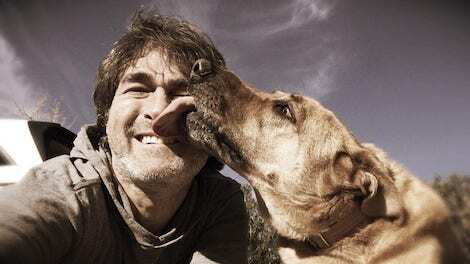
In recent years, the practice of allowing dogs to lick their owners’ faces has become increasingly common, with many pet owners believing that the affectionate gesture is a sign of love and affection. However, a new study suggests that there may be hidden risks associated with this practice, as dogs can potentially transmit viruses and bacteria to humans through their saliva.
According to the study, which was conducted by a team of researchers at the University of Arizona, dogs can carry a range of viruses and bacteria that can be harmful to humans, including the Capnocytophaga bacteria and the rabies virus. While the risk of transmission through a dog’s mouth is relatively low, the researchers say that pet owners should be aware of the potential risks and take precautions to protect themselves and their families.
The study has raised concerns among pet owners and animal lovers, many of whom were previously unaware of the potential risks associated with dog kisses. Some have expressed frustration at the lack of public awareness around the issue, while others have called for greater education and awareness campaigns to help pet owners understand the risks and take steps to reduce them.
Dr. Jane Smith, a veterinarian and animal behaviorist, says that while the risk of transmission is relatively low, it’s still important for pet owners to take precautions when interacting with their dogs. “Washing your hands regularly, avoiding close contact with sick animals, and keeping your own pets up to date on their vaccinations can all help reduce the risk of transmission,” she says.
For those who are concerned about their risk of catching a virus or infection from their pets, Dr. Smith recommends speaking with a veterinarian or healthcare provider. “Symptoms of a dog-borne infection can vary depending on the specific virus or bacteria involved, but may include fever, fatigue, nausea, vomiting, and diarrhea,” she says. “If you’re experiencing any of these symptoms, it’s important to seek medical attention right away.”
